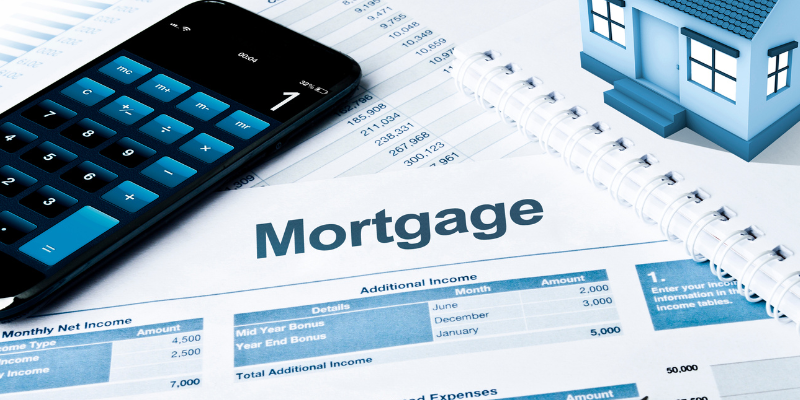
Can You Sell a House with a Mortgage in Ohio?
So you want to sell your house, but you still owe money on it. Join the club! Most homeowners are still paying off their mortgages when they decide to move.
Your mortgage isn’t some kind of ball and chain keeping you stuck. Banks aren’t evil overlords trying to trap you in your house forever. They love it when you pay them off early because they get all their money at once.
Selling with a mortgage happens every day in Ohio. The process means one extra step at closing, where your lender gets paid off with part of the sale money. Check out this guide to learn more about selling your home while a mortgage is still in place.
Can I Sell My House with a Mortgage? The Answer is Yes!
Your mortgage is just another bill paid at closing, not some kind of house-selling death sentence.
Seriously, banks aren’t sitting around plotting to trap you in your home forever. They prefer getting paid off in one lump sum rather than collecting monthly payments for the next 20-something years. It’s just better math for them.
An overview of the whole selling process? You list your house, find a buyer and head to closing. At that closing table, the buyer’s money comes in and immediately starts paying bills, your mortgage being the biggest one.
The title company handles all the paperwork with your lender. You just show up and sign papers.
Your mortgage doesn’t follow you around after you sell. It stays with the house, gets paid off, and disappears completely from your life. You walk away with whatever money is left after all the bills are paid. Sometimes, that’s a nice chunk of change, and sometimes, it’s enough for a decent dinner out.
How to Calculate Your Mortgage Payoff Amount
Your mortgage payoff amount might be different from your regular monthly statement balance. Why? It’s not just what you owe. It also includes the interest piling up since your last payment and any fees your lender decides to add.
Some lenders even charge prepayment penalties just because they’re feeling petty about losing out on years of interest payments. Yes, this happens.
Call your mortgage company and ask for an official payoff quote to get the exact amount you have to pay. Don’t trust the balance you see online; it does not update often. The customer service rep will give you a number that’s good for a specific time window, usually around two weeks.
Your interest will continue growing until you pay off the loan. It’s like a meter running in a taxi, which is always ticking up.
The title company will handle the final calculations on closing day, so you don’t need to become a math genius. They’ll call your lender that morning and get the exact amount deducted from the sale amount.
Equity vs. Underwater Mortgage Situations

Equity is the difference between your house’s worth and the amount you owe. If your home is worth $200,000 and you owe $150,000, you have $50,000 in equity.
That’s your money, and you get to keep it when you sell (minus all the closing costs and fees, but we’ll get to that later).
Being underwater means you owe more than your house is worth right now. It’s not the end of the world, but it does make selling a little more challenging. You might go underwater if you bought at the market’s peak or when your neighborhood took a hit. But you’re not stuck forever. You’ve got options!
Our advice is to get a realistic market analysis of your home’s current value and compare it to your mortgage payoff amount. This will tell you whether you need to bring money to the closing table or can walk away with a check.
Both scenarios happen all the time, so don’t stress. Contact Blad Boys Buy Homes for guidance on what to do next.
How to Sell a House with a Mortgage in Ohio: Step-by-Step Process
Selling your house with a mortgage has a few moving parts, but they all make sense once you see the big picture. Here’s exactly what you need to do.
Step 1: Figure Out Your Home’s Market Value
You need details on what buyers will pay for your house right now, not what Zillow says or what you hope it’s worth.
This means you must call a few local real estate agents and ask for a market analysis. They’ll do this for free because they want your business.
Essentially, they’ll dig into recent sales in your neighborhood and tell you the truth about your home’s value.
You could also hire an appraiser for an official opinion that costs a few hundred bucks. Whatever option you choose, you need solid numbers before you do anything else.
Your feelings about your house’s value don’t matter to buyers or banks.
Step 2: Calculate Net Proceeds After Mortgage Payoff
Next, you need to see what you’ll pocket from this sale.
Grab your mortgage payoff amount and subtract it from your home’s estimated value. Then subtract closing costs, which usually run about 2% to 3% of the sale price, plus real estate commissions if you use an agent.
Remember property taxes, HOA fees, or other random bills tied to your house.
What’s left after all these deductions is your actual take-home money. Sometimes, it’s a nice chunk, and sometimes, it barely covers moving expenses, but at least you’ll know upfront.
Step 3: Prepare Your Property for Sale
Your house needs to look clean and well-maintained without spending a fortune on renovations.
You can do a serious deep clean, get rid of clutter, and fix anything broken. A fresh coat of paint in boring neutral colors makes everything look newer, too.
Just skip the expensive kitchen remodel or fancy landscaping projects. Buyers want to see that you’ve taken care of the place.
Focus on making your house feel move-in-ready rather than magazine-perfect.
Step 4: Choose Your Selling Method
You’ve got options for how to sell this thing.
List it with a real estate agent, and they’ll handle the marketing, showings, and paperwork for a commission. Sell it yourself and keep that commission money, but deal with all the hassle personally.
Cash buyers will quickly take it off your hands, but usually pay below market value.
Meanwhile, if you owe more than it’s worth, you might need to do a short sale where your lender agrees to take less than what you owe them.
Choose whatever method fits your timeline (and tolerance for dealing with people).
Step 5: Handle the Closing and Loan Payoff
Everyone gets paid, and your mortgage finally disappears during closing.
The title company handles all the money transfers and coordinates with your lender to pay off your loan. You’ll sign paperwork for hours, but most of it just confirms stuff you already agreed to.
Your mortgage company will send you a document proving the loan is completely paid off. Keep that paper somewhere safe because it proves you don’t owe them anything anymore.
The process (from accepted offer to final closing) usually takes about a month or two.
What Are Your Selling Options When You Sell Your Home with a Mortgage
You’ve got multiple ways to get rid of your house; honestly, they all have their own special brand of chaos. You just have to pick the chaos that best suits your situation.
Traditional Sale with an Estate Agent

Real estate agents handle all the messy parts of selling your house while you sit back and let them do their thing.
They’ll market your property, deal with potential buyers who ask weird questions about your neighbor’s dog, and guide you through the paperwork.
However, note that you will pay them a commission, usually around 5% to 6% of your sale price.
A good agent knows your local market and can price your house immediately. They’ll also handle all the showings, so you don’t have to frantically hide your dirty laundry whenever someone wants to look at your place.
Plus, they know all the legal stuff and can spot red flags in offers you might miss while you dream about your next house.
For Sale by Owner (FSBO)
Selling your house yourself means keeping all that commission money but doing all the work yourself.
You’ll handle the marketing, coordinate showings with people who show up late or not at all, and more. It’s doable, but it’s also way more work than most people expect.
The biggest challenge here is pricing your house correctly and marketing it effectively without accidentally making it sound like a haunted mansion.
You’ll need to take professional photos that don’t show your unmade bed, write compelling descriptions, and figure out where to advertise.
Then you’ll spend weekends showing your house to strangers who open all your closets and evenings dealing with paperwork that multiplies fast.
Cash Buyers and Quick Sales
Cash buyers are companies or investors who buy houses fast. They also close quickly without all the usual drama.
They can make you an offer within days and usually close in a week or two, which is practically super fast in real estate time. The only downside is that they typically pay 10% to 20% below market value because they offer convenience.
This should be your go-to if you need to sell immediately or if your house needs major repairs that would cost more than your car.
Cash buyers take properties as-is, so you don’t have to worry about dealing with buyer inspections where they nitpick every loose doorknob.
You’ll get less money but way less stress.
Short Sale if You’re Underwater
A short sale happens when you owe more on your mortgage than your house is worth, and your lender agrees to accept less than what you owe them.
It’s asking your bank to forgive part of your debt so you can sell instead of drowning in payments for a house worth less than a decent used car.
Short sales take forever and require tons of paperwork and the patience of a saint.
Your lender has to approve everything, and they move slowly. You’ll also take a hit to your credit score, though not as bad as a foreclosure would be.
It’s not fun, but sometimes it’s the best way out of a financial mess that keeps you awake at night.
Legal Requirements for Home Selling in Ohio
Ohio has its own rules for selling houses, and breaking them can cost you money. The state isn’t trying to make your life difficult. It just wants to make sure everyone plays fair and nobody gets screwed over.
Ohio Disclosure Laws for Property Sales

Ohio requires you to tell potential buyers about any significant problems with your house that they can’t see during a normal walkthrough.
This includes foundation issues, roof leaks, electrical problems, and the time your basement flooded during the big storm two years ago.
You fill out a disclosure form that lists all the known defects and give it to buyers before they make an offer.
Don’t try to hide problems, thinking you’ll get away with it. Why? Buyers can sue you after closing if they discover you knew about issues and didn’t disclose them.
It’s always better to be upfront about problems and let buyers decide if they want to deal with them. Most issues can be negotiated during the sale, so honesty usually works better than hiding.
Title Transfer and Mortgage Release Process
When you sell your home for cash in Ohio, the title has to be officially transferred from you to the buyer. Your mortgage lender also has to release their claim on the property.
This happens at closing through a title company or real estate attorney who handles all the paperwork and money transfers. They ensure the buyer gets a clean title and your lender gets paid off completely.
Ohio requires certain documents to be filed with the county recorder’s office to make everything official. Your title company handles this automatically, but it can take a few weeks for all the paperwork to get processed and recorded.
Once done, you’re completely free from any responsibility for that property, and the buyer officially owns it.
What Challenges Can You Expect When Selling a House with a Mortgage
Most issues when selling a house with a mortgage have solutions, but they can slow your sale or cost you extra money if you’re unprepared for them.
Dealing with Multiple Mortgages or Liens
Selling can be stressful if you have more than one mortgage on your house or if there are any liens against the property.
Each lender needs to be paid off at closing, and sometimes, liens exist that you forgot about or didn’t even know existed.
Getting a title search before listing your house is better to see exactly what’s attached to your property. This way, you can deal with the issues upfront.
Timing Issues and Loan Coordination
Your mortgage payoff amount changes daily because interest accumulates until the loan gets paid off.
The title company has to coordinate with your lender to get the exact payoff amount on closing day, which can be tricky if your lender moves slowly.
You must build some buffer time into your moving plans. Don’t schedule the moving truck for the same day as closing unless you enjoy living dangerously.
Negative Equity Solutions
When you owe more than your house is worth, you have limited options, but are not completely stuck.
You can bring cash to closing to cover the difference, negotiate a short sale with your lender, or wait and hope your home’s value increases over time.
If you’re only slightly underwater, sometimes you can negotiate with the buyer or ask your lender to work with you on the numbers.
Tax Implications When You Sell
Selling your house can trigger some tax consequences that might surprise you if you’re not expecting them.
The IRS considers your home sale a taxable event, but some pretty generous exemptions let most people keep their profits tax-free.
If you’ve lived in your house as your primary residence for at least two of the past five years, you can exclude up to $250,000 in profit from taxes if you’re single or $500,000 if you’re married and filing jointly.
This is called the primary residence exclusion. It’s one of the best tax breaks available to regular homeowners. You can use this exemption once every two years.
Any profit above these limits gets taxed as capital gains. If you owned the house for more than a year, long-term capital gains have lower tax rates than regular income.
If you sold the house for less than you paid for it plus improvements, you don’t owe any taxes because you didn’t make a profit.
Please ensure you keep records of all the improvements you made to the house, as they can reduce your taxable gain.
Why Some Homeowners Choose Cash House Buyers
Cash buyers have become more popular lately because they solve specific problems that traditional sales can’t handle.
They’re not right for everyone, but they work great for people who need to sell fast or have houses that need major work.
The most significant advantage of selling your house with a mortgage to a cash buyer is speed. They can close in as little as a week because they don’t need mortgage approval or lengthy inspections.
They also buy houses in any condition, so you don’t have to fix that leaky roof or update that old bathroom. You’ll get less than a traditional sale, but save on repairs and staging costs!
Cash buyers are for you if you’re dealing with foreclosure, divorce, inherited a house you don’t want, or need to move quickly for work or family reasons.
Cash home buyers in Toledo, OH, and nearby areas are also good for houses in rough neighborhoods where traditional buyers might be scared off.
Key Takeaways: Can You Sell a House with a Mortgage in Ohio?
You don’t have to wait until your mortgage is paid to sell your house. Many Ohio homeowners sell every year while still owing money on their loans.
The mortgage will be handled at closing when your lender is paid directly from the sale proceeds. You will keep whatever’s left over after all the bills are settled.
Note, however, that you need to understand your equity situation and choose a selling strategy that matches your timeline. If traditional selling methods don’t fit your needs, Blad Boys Buy Homes has creative solutions. We can help you structure deals that work around your mortgage situation while potentially providing better long-term returns than a standard cash sale. Call us now at (937) 404-6614 or fill out the form below.
Useful Ohio Blog Articles
- Selling Your Ohio Home By Owner
- Selling A Foreclosed Home In Ohio
- How To File A Quitclaim Deed In Ohio
- Selling A Tenant-Occupied House In Ohio
- Appraisal Required Repairs In Ohio Real Estate
- Selling a Home That Needs Repairs in Ohio
- Sell a House With a Mortgage in Ohio
- Sell a House While Relocating in Ohio
- Paperwork for Selling a House by Owner in Ohio
- How to Sell an Inherited House in Ohio

